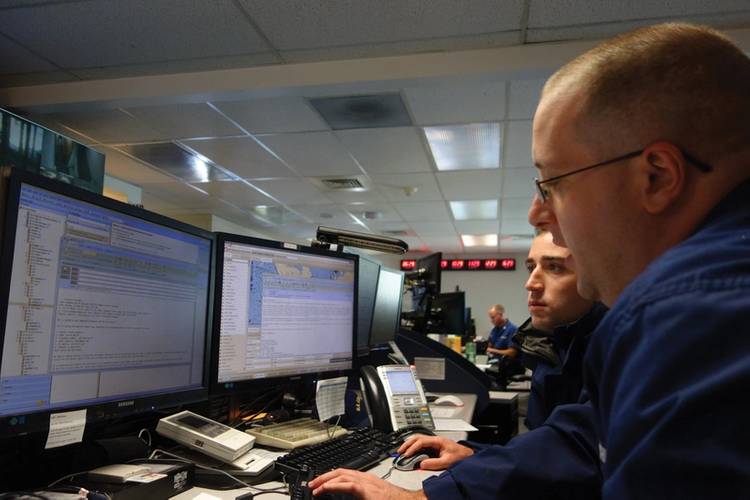Safeguarding GPS When Global Positioning Doesn’t Work
Suppose the Global Positioning System (GPS) receivers used for your vessel, offshore oil platform, or port facility could not generate position data needed for your operations. How would your crew or staff respond? Initial troubleshooting efforts may indicate equipment failures, antenna masking, or possibly human error. Additionally, the lack of position data will likely force your crew or staff to resort to secondary means to obtain position information. If position data cannot be regained, then the receivers may have lost GPS due to intentional or unintentional interference.
In these circumstances, ship’s officers or supervisors may relay the incident to other key personnel within the organization. But will these individuals report the GPS disruption to an external entity? Or rather, what external organization should receive GPS disruption reports? Both of these questions point to whether there is value in reporting GPS service disruptions. There is value in finding out how, and why.
The Value of GPS
According to the European GNSS Agency (GSA)’s 2013 Global Navigation Satellite System (GNSS) Market Report, the maritime industry purchased over 100 thousand GNSS units in 2012. Their estimates project that the deployment of GNSS units will skyrocket to nearly 180 thousand units in 2022. In the U.S, the U.S. Census Bureau reported that $937 billion of goods were transported in U.S. waterways from January to July 2014. As the International Maritime Organization’s (IMO) e-Navigation concept matures, the global maritime industry’s strong dependence on GPS and other GNSS will only continue to grow. Therefore, disruptions to GPS will directly impede marine operations, impact your financial bottom-line, and the vitality of the global economy.
Dr. Nam D. Pham, a principal economic researcher for the U.S. Chamber of Commerce Foundation, estimated in 2011 that the U.S. economy will incur $96 billion in losses annually, or 0.7% of the U.S. economy, during large-scale GPS disruptions. Even smaller scale GPS disruptions will hinder the competitiveness of marine GPS users.
Reporting Outages
Reporting GPS disruptions is simple—notify the U.S. Coast Guard Navigation Center (NAVCEN). This Coast Guard unit, located in Alexandria, Virginia, is your first point of contact for suspected GPS jamming and/or interference inquiries. Depending on the severity of the disruption, NAVCEN may refer the disruption report to law enforcement or federal agencies for further investigation and corrective action. It is important to note that GPS jammers are illegal for use, market, and sale. These electronic devices intentionally block GPS signals and place people in danger. Violating this federal law can result in monetary penalties, seizure of the jamming device, and even imprisonment.
If your crew or staff suspect GPS interference during your operations, then submit a GPS outage report through the NAVCEN website at www.navcen.uscg.gov. Your report will be disseminated to the U.S. Air Force GPS Operations Center (GPSOC) and the Federal Aviation Administration (FAA) in an attempt to identify the problem and correlate other GPS incidents. If internet connectivity is an issue, then you can call the round-the-clock operations center. Watchstanders will file the outage report on your behalf and begin the GPS problem resolution process. Even if the incident has passed, filing a GPS outage report is still highly encouraged.
NAVCEN is also the world’s civil GPS representative to the U.S. Air Force, the operators of GPS. Part of its civil GPS liaison responsibilities is to co-chair the Civil GPS User Interface Committee (CGSIC), a world-wide forum between civil GPS users and U.S. Government GPS service providers. Since 1991, NAVCEN has been the voice of the maritime community in GPS-related meetings. Its other duties include disseminating GPS information, collecting worldwide user input and feedback for civil GPS user needs, and advocating on behalf of terrestrial GPS users in all GPS-related meetings, especially system planning and operation.
Core enablers to the IMO’s e-Navigation concept are the signals provided by the world’s premier GNSS, especially GPS. This global movement toward integrated ship and shore systems to be used by maritime professionals relies on independent GNSS signals to improve position performance and provide system redundancy. However, current standalone ship and shore systems may only use GPS. Even if ship and system owners invest to recapitalize existing equipment with receivers capable of using all available GNSS signals, intentional or unintentional GPS interference will still severely impact the equipment’s performance.
Protect your bottom-line by reporting GPS service disruptions. Your efforts will ensure that GPS remains a “Great Positioning Source” for all stakeholders. To learn more about the U.S. Coast Guard Navigation Center, visit www.navcen.uscg.gov. To report GPS service disruptions, submit outage reports at http://www.navcen.uscg.gov/?pageName=gpsUserInput or call 703-313-5900.
(As published in the November 2014 edition of Marine News - http://magazines.marinelink.com/Magazines/MaritimeNews)

















